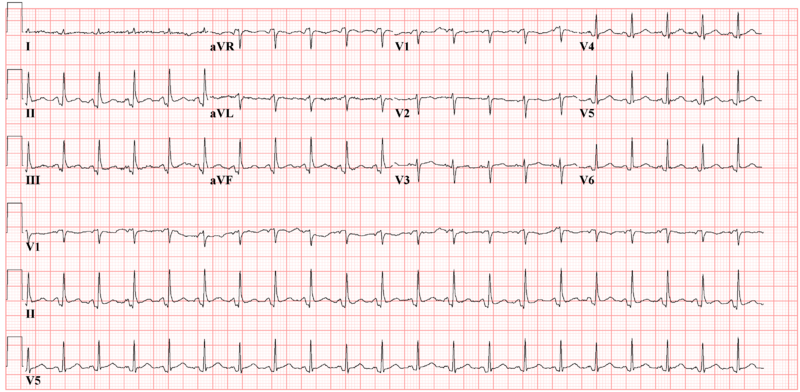WBR0026: Difference between revisions
Jump to navigation
Jump to search
Gerald Chi (talk | contribs) |
No edit summary |
||
| Line 1: | Line 1: | ||
{{WBRQuestion | {{WBRQuestion | ||
|QuestionAuthor=Raviteja Reddy Guddeti MBBS, Aarti Narayan MBBS | |QuestionAuthor=Raviteja Reddy Guddeti MBBS, Aarti Narayan MBBS (Reviewed by Gonzalo Romero) | ||
|ExamType=USMLE Step 2 CK | |ExamType=USMLE Step 2 CK | ||
|MainCategory=Pharmacology, Internal medicine | |MainCategory=Pharmacology, Internal medicine | ||
| Line 20: | Line 20: | ||
|MainCategory=Pharmacology, Internal medicine | |MainCategory=Pharmacology, Internal medicine | ||
|SubCategory=Cardiology, Cardiovascular | |SubCategory=Cardiology, Cardiovascular | ||
|Prompt=A 35 year old | |Prompt=A 35-year-old female presents with fever, weakness and pleuritic chest pain. The pain is relieved by sitting up and leaning forward. Auscultation reveals friction rub. Her EKG is depicted below: <br> [[File:PtaDepressionPericarditis.png|700px]] <br> What is the best initial therapy in this patient? | ||
|Explanation=The correct answer is NSAIDs. This patients presentation is classic for acute pericarditis. NSAIDs, such as indomethacin and aspirin, are the best initial therapy for acute pericarditis. | |Explanation=The correct answer is NSAIDs. This patients presentation is classic for acute pericarditis. NSAIDs, such as indomethacin and aspirin, are the best initial therapy for acute pericarditis. | ||
|AnswerA=Colchicine | |AnswerA=Colchicine | ||
